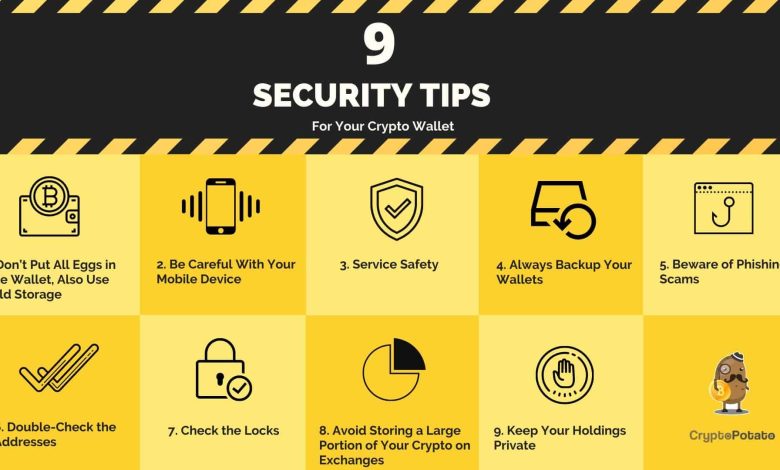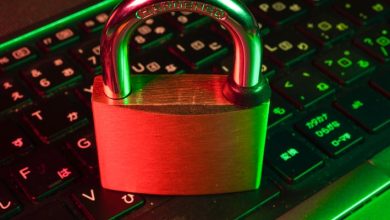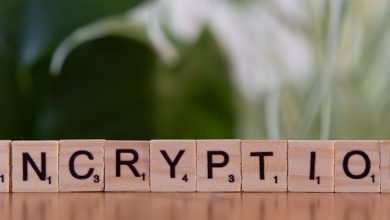How to Identify Secure Crypto Wallets

- Understanding the importance of secure crypto wallets
- Key features to look for in a secure crypto wallet
- Common types of crypto wallets and their security levels
- Tips for choosing the right crypto wallet for your needs
- How to verify the authenticity of a crypto wallet
- Best practices for securing your crypto assets in a wallet
Understanding the importance of secure crypto wallets
Cryptocurrency wallets play a crucial role in the security of your digital assets. It is essential to understand the importance of using a secure crypto wallet to protect your investments from potential threats. Secure wallets provide encryption and other security features to safeguard your funds from hackers and unauthorized access.
When choosing a crypto wallet, it is vital to opt for reputable providers with a proven track record of security. Look for wallets that offer two-factor authentication, multi-signature functionality, and cold storage options. These features add an extra layer of protection to your funds and reduce the risk of theft.
Secure crypto wallets also ensure the integrity of your transactions by verifying the authenticity of each transfer. This helps prevent unauthorized transactions and protects your funds from being stolen. Additionally, secure wallets keep your private keys safe and secure, preventing them from falling into the wrong hands.
By using a secure crypto wallet, you can have peace of mind knowing that your digital assets are protected from potential threats. Investing in a secure wallet is a small price to pay for the security and protection of your cryptocurrency holdings. Take the time to research and choose a secure wallet that meets your needs and provides the level of security you require.
Key features to look for in a secure crypto wallet
When looking for a secure crypto wallet, there are several key features to keep in mind to ensure the safety of your cryptocurrency holdings:
- Encryption: Look for a wallet that offers end-to-end encryption to protect your private keys and transactions from cyber threats.
- Multi-factor authentication: Opt for a wallet that supports multi-factor authentication to add an extra layer of security to your account.
- Backup and recovery: Choose a wallet that allows you to easily backup and recover your wallet in case it is lost or compromised.
- Open-source: Consider using an open-source wallet as it allows for greater transparency and community scrutiny of the code.
- Hardware wallet support: If you have a large amount of cryptocurrency, consider using a hardware wallet for added security.
- Regular updates: Ensure that the wallet you choose receives regular updates and security patches to protect against emerging threats.
- Reputation: Research the reputation of the wallet provider and look for reviews from other users to gauge its trustworthiness.
Common types of crypto wallets and their security levels
When it comes to crypto wallets, there are several common types that users can choose from, each with varying levels of security. It is important to understand the differences between these wallets in order to select the most secure option for storing your cryptocurrency.
- Hardware Wallets: Hardware wallets are physical devices that store the user’s private keys offline, making them less vulnerable to hacking. These wallets are considered one of the most secure options available.
- Software Wallets: Software wallets are applications or programs that can be downloaded onto a computer or mobile device. While convenient, software wallets are more susceptible to cyber attacks compared to hardware wallets.
- Web Wallets: Web wallets are online platforms that store users’ private keys on the cloud. While convenient for accessing funds from any device with an internet connection, web wallets are more vulnerable to hacking.
- Paper Wallets: Paper wallets involve printing out the user’s private keys and storing them in a secure physical location. While paper wallets are immune to cyber attacks, they are susceptible to physical damage or loss.
It is essential to consider the security features of each type of wallet before making a decision. Hardware wallets are generally considered the most secure option due to their offline storage of private keys, while paper wallets offer a high level of security as well. Software and web wallets are convenient but may pose a higher risk of hacking. Ultimately, the choice of wallet will depend on your individual needs and preferences.
Tips for choosing the right crypto wallet for your needs
When it comes to choosing the right crypto wallet for your needs, there are several factors to consider. Here are some tips to help you make an informed decision:
- Security: Look for a wallet that offers robust security features, such as two-factor authentication and encryption. Make sure the wallet has a good reputation for keeping users’ funds safe.
- Compatibility: Consider the type of cryptocurrencies you plan to store in the wallet and choose one that supports those coins. Some wallets are designed for specific cryptocurrencies, while others support a wide range of digital assets.
- User-friendly interface: Choose a wallet that is easy to use and navigate, especially if you are new to the world of cryptocurrency. A wallet with a clean and intuitive interface can make managing your funds much simpler.
- Backup and recovery options: Look for a wallet that offers backup and recovery options in case you lose access to your account. This can help you avoid losing your cryptocurrencies in the event of a technical issue or lost password.
- Customer support: Consider the level of customer support offered by the wallet provider. It’s important to choose a wallet that provides timely and helpful support in case you encounter any issues with your account.
By taking these factors into account, you can choose a crypto wallet that meets your needs and provides you with peace of mind knowing that your funds are secure.
How to verify the authenticity of a crypto wallet
To verify the authenticity of a crypto wallet, there are several key steps you can take to ensure that you are using a secure and reliable option. One of the first things you should do is to check the reputation of the wallet provider. Look for reviews and feedback from other users to see if there have been any reported issues or concerns with the wallet in question. Additionally, you can verify the wallet’s authenticity by checking if it is listed on reputable cryptocurrency websites or forums. This can help you confirm that the wallet is legitimate and not a scam.
Another important factor to consider when verifying the authenticity of a crypto wallet is to check if the wallet has been audited by a third-party security firm. Audits can provide valuable insights into the security measures implemented by the wallet provider and can help you determine if the wallet is safe to use. Additionally, you can also check if the wallet has been endorsed by reputable cryptocurrency experts or organizations. This can add an extra layer of credibility to the wallet and give you peace of mind knowing that it has been vetted by industry professionals.
Furthermore, you can verify the authenticity of a crypto wallet by checking if it has a transparent and clear privacy policy. A privacy policy outlines how the wallet provider collects, uses, and protects your personal information. By reviewing the privacy policy, you can ensure that your data is being handled responsibly and securely. Additionally, you can also check if the wallet uses encryption and other security measures to protect your funds and information. This can help you determine if the wallet is secure and trustworthy.
In conclusion, verifying the authenticity of a crypto wallet is crucial to ensure that your funds and personal information are safe. By following these steps and conducting thorough research, you can identify secure and reliable wallets that meet your needs. Remember to always prioritize security and do your due diligence before choosing a crypto wallet to protect your assets in the volatile world of cryptocurrency.
Best practices for securing your crypto assets in a wallet
When it comes to securing your crypto assets in a wallet, there are several best practices that you should follow to ensure the safety of your investments. Here are some key tips to keep in mind:
- Choose a reputable wallet: It is essential to select a well-known and trusted wallet provider to minimize the risk of security breaches.
- Enable two-factor authentication (2FA): Adding an extra layer of security with 2FA can help prevent unauthorized access to your wallet.
- Use a strong password: Create a complex password that includes a combination of letters, numbers, and special characters to make it harder for hackers to crack.
- Keep your private keys offline: Storing your private keys offline, such as on a hardware wallet, can protect them from online threats.
- Regularly update your wallet software: Make sure to install updates and patches to fix any security vulnerabilities in your wallet.
- Avoid sharing sensitive information: Never share your private keys, seed phrases, or other confidential data with anyone to prevent unauthorized access to your funds.
By following these best practices, you can enhance the security of your crypto assets and reduce the risk of theft or loss. Remember that taking proactive measures to protect your investments is crucial in the ever-evolving landscape of cryptocurrency.



